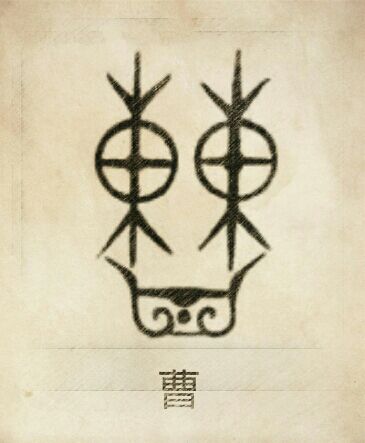Introduction
The Cao(cáo) surname is one of the most ancient and fascinating surnames in Chinese history. With roots stretching back over 3,000 years, the Cao family has played a pivotal role in shaping China's political, cultural, and scientific landscapes. This article explores the origins, historical figures, cultural significance, and modern influence of the Cao surname, offering a comprehensive look at its enduring legacy.

Ⅰ、 Origins: A Tapestry of Diverse Roots
The Cao surname boasts a rich and diverse origin story, reflecting the complex tapestry of Chinese history. Its roots can be traced to multiple sources, each contributing to the surname's unique identity.
1.The Ancient Zhurong Descendants
The earliest Cao lineage is believed to have originated from An, a descendant of the legendary Emperor Zhuanxu. An served as a "Cao official" (a role managing laborers) during the reign of Yu the Great, and his descendants adopted "Cao" as their surname.
2.The Royal Connection: Zhou Dynasty Enfeoffment
During the Western Zhou Dynasty (1046–771 BCE), King Wen's thirteenth son, Shu Zhen Duo, was granted the territory of Cao (modern-day Shandong). When the Cao state was conquered by the Song state in 487 BCE, its people adopted "Cao" as their surname. This branch is considered the most prominent, with notable descendants like Cao Cao, the famous warlord of the Three Kingdoms period.
3.Ethnic Integration and Foreign Influences
The Cao surname also absorbed influences from various ethnic groups, including the Xiongnu, Xianbei, Manchu, and Mongolians, who adopted the surname during periods of cultural assimilation. Additionally, migrants from the Central Asian state of Cao (in modern-day Uzbekistan) brought the surname to China during the Sui and Tang dynasties.
Ⅱ、Historical Figures: A Legacy of Excellence
The Cao surname has produced an extraordinary array of historical figures, spanning politics, military, literature, and science.
1.Political and Military Leaders
Cao Gui: A military strategist from the Spring and Autumn period, famous for his "one burst of energy" tactic.
Cao Cao: A brilliant politician and warlord who founded the Wei state during the Three Kingdoms era. His policies, such as the Tuntian system, revitalized the economy of northern China.
Cao Can: A key figure in the founding of the Han Dynasty, known for his policy of "following Xiao He's rules," which stabilized the early Han government.
2.Literary and Artistic Giants
Cao Zhi: A literary prodigy of the Jian'an period, renowned for his poetic masterpiece "Seven Steps Verse."
Cao Xueqin: The author of Dream of the Red Chamber, often regarded as the greatest novel in Chinese literature.
Cao Ba: A Tang Dynasty painter celebrated for his lifelike depictions of horses.
Cao Yu: A pioneer of modern Chinese drama, whose works like Thunderstorm and Sunrise revolutionized Chinese theater.
3.Moral Exemplars
Cao E: A Han Dynasty filial daughter who drowned while searching for her father's body. Her story became a symbol of filial piety.
4.Scientific Pioneers
Cao Tianqin: A biochemist who played a key role in the synthesis of artificial insulin in 1958, marking a milestone in China's scientific advancement.
Ⅲ、 Cultural Significance: A Mirror of Chinese Civilization
The Cao surname is deeply intertwined with Chinese culture and history, reflecting the nation's evolution over millennia.
1.Political Legacy
The Cao Wei regime introduced the Nine-Rank System, which influenced China's bureaucratic structure for centuries. Cao Cao's merit-based recruitment policy broke the monopoly of aristocratic families, promoting social mobility.
2.Ethnic Integration
The Cao surname embodies China's "unity in diversity," with branches among the Han, Xiongnu, Xianbei, and other ethnic groups. For example, the Achang and Bulang ethnic minorities in Yunnan have Cao lineages, showcasing the blending of frontier and central plains cultures.
3.Literary and Philosophical Contributions
Works like The Goddess of the Luo River and Seven Steps Verse cemented the Cao family's literary legacy. Dream of the Red Chamber offers a panoramic view of feudal society, making it a cornerstone of Chinese literature.
4.Clan Culture
Cao ancestral halls and couplets, such as "Famed for outstanding talent, celebrated for literary brilliance," reflect the family's Confucian values and historical pride. Sites like Qiao County and Pengcheng preserve the clan's rich heritage.
Ⅳ、 Modern Influence: A Global Impact
The Cao surname continues to make waves in contemporary society, both in China and abroad.
1.Philanthropy
Cao Dewang, founder of Fuyao Group, has donated over 12 billion yuan to charity, setting a record for individual philanthropy in China.
2.Cultural Revival
Cao County in Shandong has become the "Hanfu Capital of China," accounting for one-third of the nation's Hanfu sales in 2022.
3.Scientific Breakthroughs
Chinese-American scientist Cao Yuan's discovery of graphene superconductivity earned him a spot on Nature's list of top scientists in 2018.
Ⅴ、Conclusion
The Cao surname is a microcosm of Chinese history, embodying the nation's political evolution, cultural richness, and scientific progress. From the battlefield strategies of Cao Cao to the literary genius of Cao Xueqin, and from the scientific achievements of Cao Tianqin to the global impact of modern Cao descendants, this surname has left an indelible mark on the world. As we move further into the 21st century, the Cao family continues to bridge tradition and innovation, proving that their legacy is as dynamic as it is enduring.